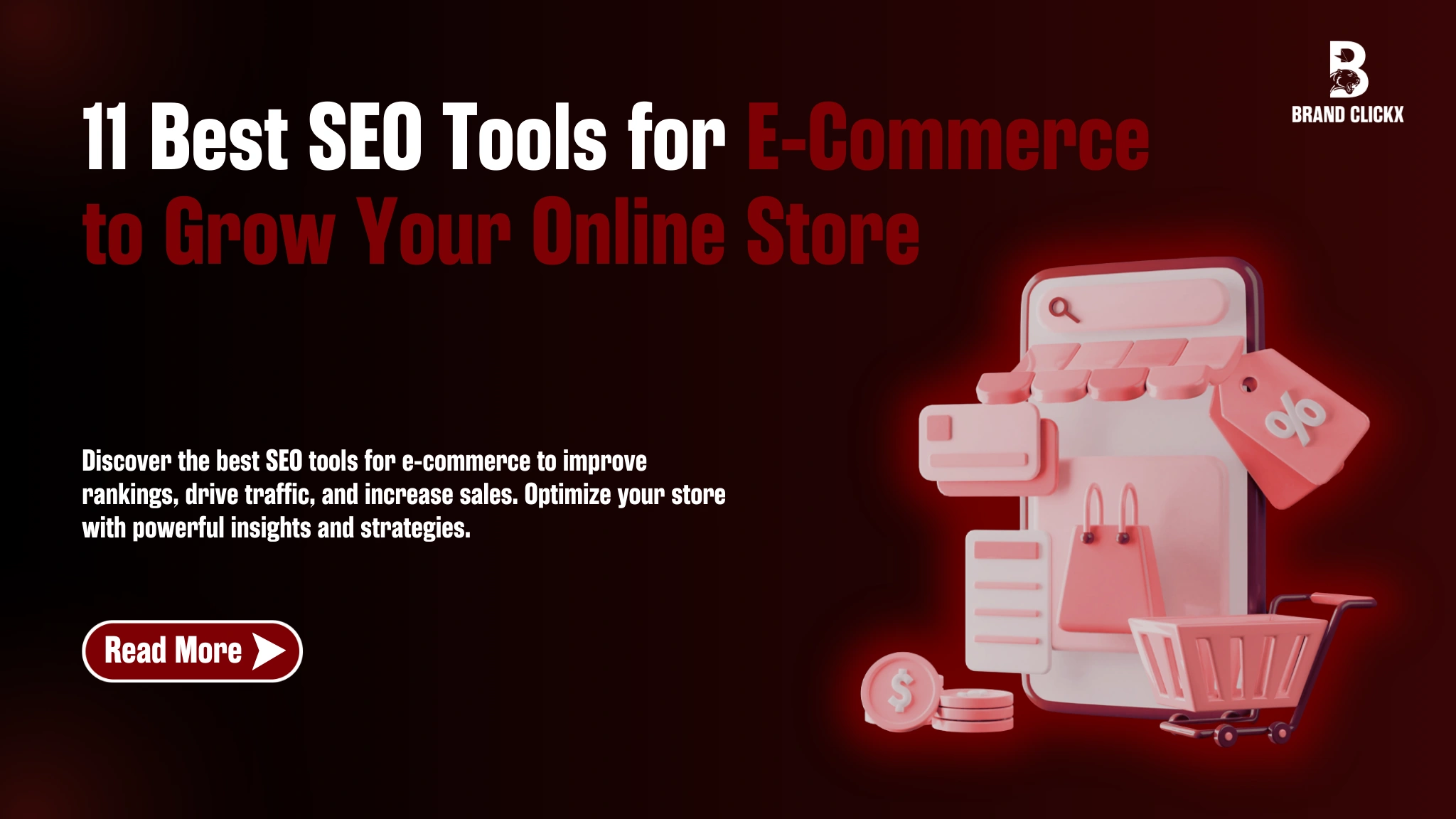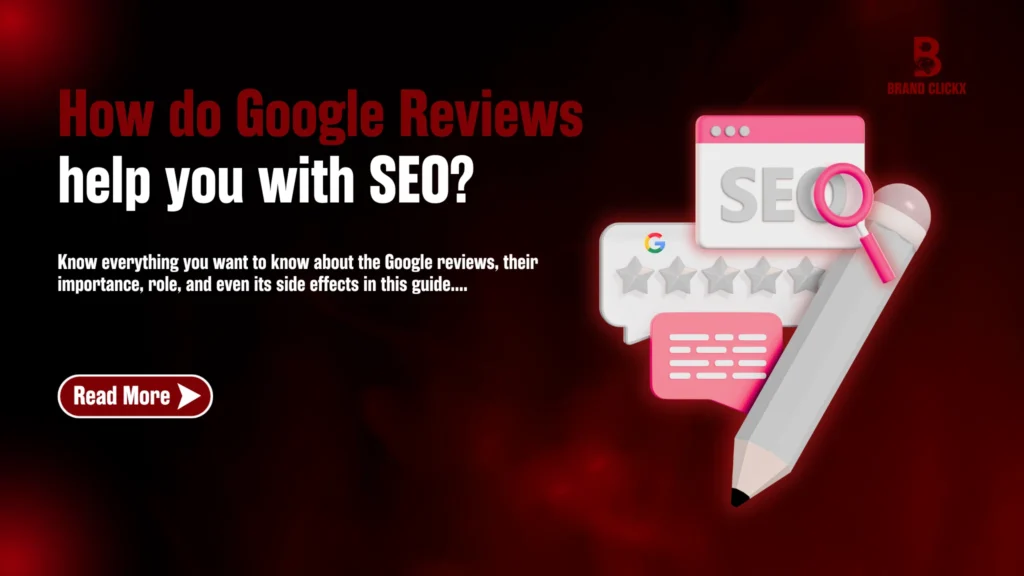SEO for eCommerce is about making your store easy to find and hard to ignore. To do so, you need the right SEO tools. Those tools don’t just give you numbers; they show you what’s working, what’s holding you back and how to fix it without getting lost in the weeds.
Some tools give you the exact words your customers are searching for. Others tune up your site’s speed, structure and visibility. The key isn’t using more tools—it’s using the right ones.
Here’s the list of the best SEO tools for e-commerce. Whether it’s more traffic, more conversions, or just making SEO less of a guessing game, these will help you get there.

11 Best SEO Tools for E-Commerce
1. SEMrush
SEMrush is a powerful all-in-one SEO tool. It helps with:
- Keyword research: Find high-ranking search terms.
- Competitor analysis: Track rivals’ SEO strategies.
- Site audits: Detect and fix SEO issues.
Businesses use it to track rankings and improve their online visibility. It provides insights into organic traffic, backlinks, and PPC campaigns. The tool also suggests keyword opportunities. Its competitor tracking feature helps eCommerce sites stay ahead.
With SEMrush, users can audit their websites for SEO issues. It also offers content marketing tools. The platform is great for both beginners and experts.
2. Ahrefs
Ahrefs is a leading tool for backlink analysis and keyword research. It shows how websites gain traffic and rank on search engines. Its database is one of the largest in terms of SEO insights.
It helps eCommerce businesses track competitors. Users can analyze which keywords drive sales. The tool also finds broken links and content gaps.
Ahrefs is known for its Site Explorer feature. It gives a detailed look at organic search performance. Its simple interface makes SEO strategy planning easier.
3. Screaming Frog SEO Spider
Screaming Frog SEO Spider is a website crawler. It identifies SEO issues like broken links and duplicate content. It is widely used by SEO professionals.
The tool scans a website’s structure. It highlights missing meta tags, redirects, and errors. This helps improve site optimization and user experience.
It is great for large eCommerce websites. Users can export data and analyze it in-depth. The tool speeds up technical SEO fixes.
4. Google Search Console
Google Search Console is a free tool from Google. It helps monitor website performance in search results. It provides insights into indexing, clicks, and impressions.
Users can identify technical SEO issues. It shows which pages are indexed or blocked. It also highlights mobile usability problems.
E-commerce businesses benefit from its search traffic data. It helps optimize pages for better rankings. Regular use improves site performance.
5. Surfer SEO
Surfer SEO helps with on-page optimization. It analyzes content and suggests improvements. The tool provides real-time recommendations.
It compares a webpage with top-ranking competitors. It suggests keyword density, headings, and readability improvements. This makes content more SEO-friendly.
E-commerce stores can use it for product descriptions and blogs. The tool ensures content is well-optimized. It improves search rankings effectively.
6. Yoast SEO
Yoast SEO is a popular WordPress plugin. It simplifies on-page SEO optimization. Users can optimize meta tags, readability, and schema markup.
It provides SEO scores for content. The tool suggests improvements for better rankings. Its readability analysis ensures user-friendly text.
E-commerce websites benefit from its structured data features. It helps products appear in rich results. The tool is easy to use for beginners.
7. Majestic SEO
Majestic SEO specializes in backlink analysis. It measures a site’s trustworthiness and influence. It helps businesses build strong link profiles.
The tool uses Trust Flow and Citation Flow metrics. It shows how valuable a website’s links are. Users can analyze competitors’ backlinks.
E-commerce sites benefit from strong backlink strategies. Majestic SEO helps find quality link opportunities. It improves authority and rankings.
8. Plug In SEO (for Shopify)
Plug In SEO is a Shopify app. It detects SEO issues in online stores. The tool provides actionable recommendations.
It checks for broken links, speed issues, and missing metadata. It helps optimize product pages and collections. This boosts search engine visibility.
Shopify store owners use it to improve rankings. It simplifies SEO tasks for beginners. The app helps maintain a well-optimized site.
9. SEO Manager (for Shopify)
SEO Manager is another Shopify-specific tool. It improves store SEO with easy-to-use features. The app checks and fixes on-page SEO issues.
It helps with meta tags, JSON-LD, and alt text. Users can track rankings and performance. It also provides keyword suggestions.
This tool is perfect for e-commerce stores. It simplifies SEO optimization. The app ensures better visibility in search results.
10. PageSpeed Insights
PageSpeed Insights analyzes website speed. It provides performance scores and tips for improvement. Faster sites rank better in search results.
The tool highlights issues slowing down a page. It suggests fixes like image compression and caching. Speed optimization improves user experience.
E-commerce stores benefit from fast-loading pages. A quicker site boosts conversions. PageSpeed Insights ensures smooth website performance.
11. GTmetrix
GTmetrix measures website speed and performance. It provides detailed load time reports. Users can see what slows down their site.
It gives recommendations for improvement. The tool analyzes images, scripts, and server response time. Better performance leads to better SEO.
E-commerce stores need fast pages for higher sales. GTmetrix helps optimize site speed. A well-performing site improves rankings and user experience.
Also Read:
- Top 15 free Reputation Monitoring tools to explore
- Visual Content Creation for Social Media: Pro Tips & Tools
- 10 Best Web Development Tools: Build Websites
FAQs
1. Which SEO tool is best for Shopify?
- Ahrefs and SEMRush are great for keyword research.
- Plug in SEO and Yoast SEO (for Shopify) to help with on-page fixes.
2. How do you do SEO for e-commerce?
To rank higher and attract more buyers, focus on these key SEO strategies:
- Find high-intent keywords
- Optimize product pages
- Write engaging descriptions
- Improve site speed
- Build quality backlinks
3. Which SEO tool is best?
- Ahrefs – Best for backlinks and keyword research
- SEMRush – Great for competitor insights
- Google Search Console – Essential for tracking performance
- Yoast SEO – Helps with content optimization
4. Is SEO worth it for e-commerce?
Absolutely! It brings free traffic, increases sales, and builds long-term brand trust—way better than just relying on ads.
Conclusion
SEO is a game of trial and error. But with the right tools, it doesn’t have to be. Whether it’s finding the right keywords or speeding up your site, these tools can help. They also make sure customers can actually see what you’re selling. But let’s be real; tools can only take you so far. If you want real results without the headaches, Brand ClickX has you covered. We’ll do the SEO heavy lifting so you can do what you do best—grow your business. Let’s get your store unstoppable. Get in touch today!



